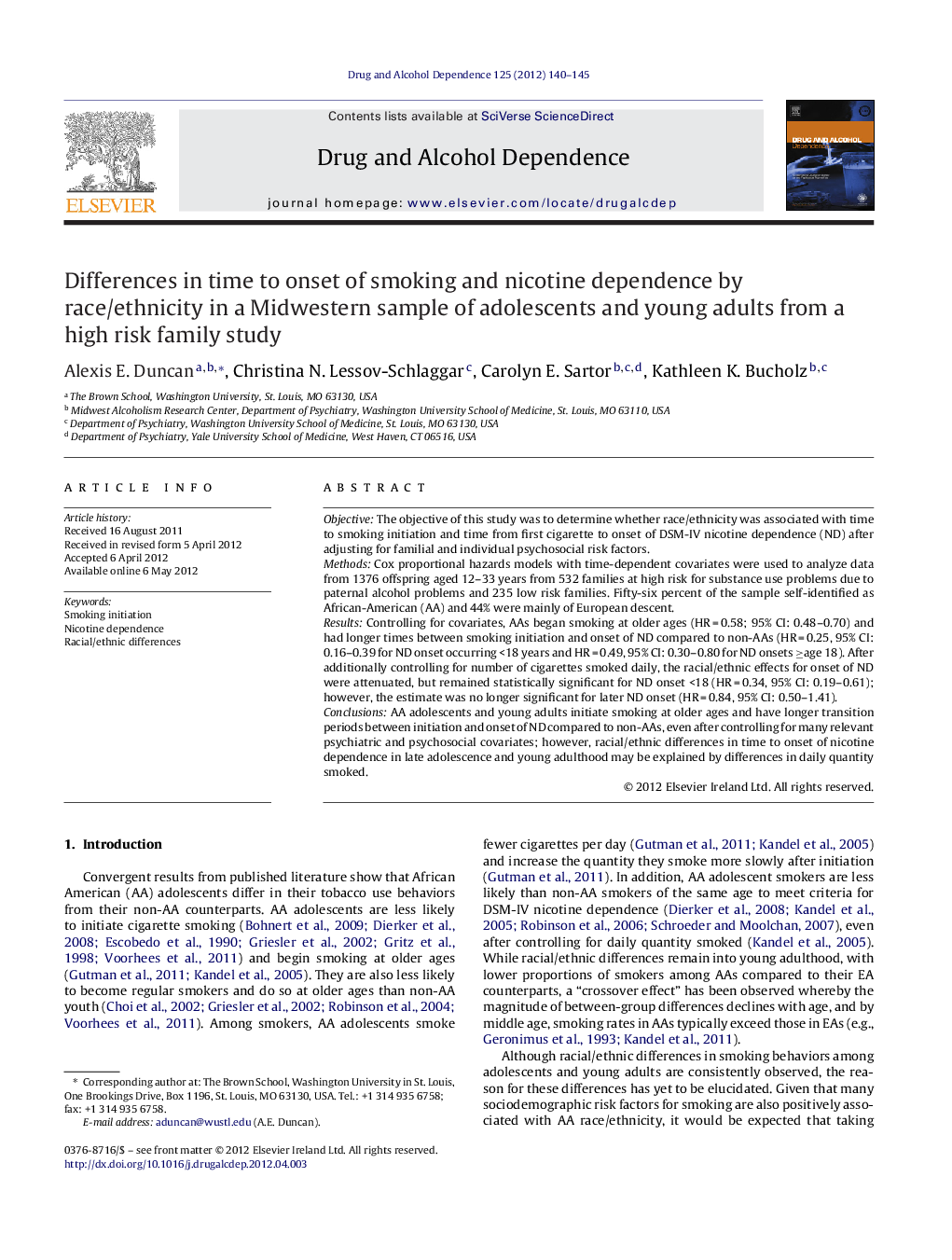| کد مقاله | کد نشریه | سال انتشار | مقاله انگلیسی | نسخه تمام متن |
|---|---|---|---|---|
| 1070092 | 1486165 | 2012 | 6 صفحه PDF | دانلود رایگان |

ObjectiveThe objective of this study was to determine whether race/ethnicity was associated with time to smoking initiation and time from first cigarette to onset of DSM-IV nicotine dependence (ND) after adjusting for familial and individual psychosocial risk factors.MethodsCox proportional hazards models with time-dependent covariates were used to analyze data from 1376 offspring aged 12–33 years from 532 families at high risk for substance use problems due to paternal alcohol problems and 235 low risk families. Fifty-six percent of the sample self-identified as African-American (AA) and 44% were mainly of European descent.ResultsControlling for covariates, AAs began smoking at older ages (HR = 0.58; 95% CI: 0.48–0.70) and had longer times between smoking initiation and onset of ND compared to non-AAs (HR = 0.25, 95% CI: 0.16–0.39 for ND onset occurring <18 years and HR = 0.49, 95% CI: 0.30–0.80 for ND onsets ≥age 18). After additionally controlling for number of cigarettes smoked daily, the racial/ethnic effects for onset of ND were attenuated, but remained statistically significant for ND onset <18 (HR = 0.34, 95% CI: 0.19–0.61); however, the estimate was no longer significant for later ND onset (HR = 0.84, 95% CI: 0.50–1.41).ConclusionsAA adolescents and young adults initiate smoking at older ages and have longer transition periods between initiation and onset of ND compared to non-AAs, even after controlling for many relevant psychiatric and psychosocial covariates; however, racial/ethnic differences in time to onset of nicotine dependence in late adolescence and young adulthood may be explained by differences in daily quantity smoked.
Journal: Drug and Alcohol Dependence - Volume 125, Issues 1–2, 1 September 2012, Pages 140–145